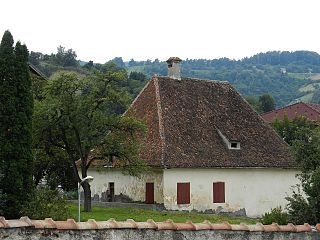 W
WIoan Barac was an Imperial Austrian ethnic Romanian translator and poet.
 W
WAurel Baranga was a Romanian playwright and poet.
 W
WLinda Maria Baros is a French-language poet, translator and literary critic, one of the most powerful new voices on today's poetry scene . She lives in Paris, France.
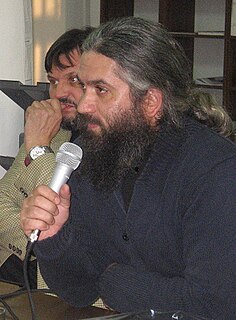 W
WȘtefan Baștovoi, best known as Savatie Baștovoi is a Moldavian orthodox monk, is an essayist, poet, novelist, theologian and Romanian writer of the Republic of Moldova. He became a member of the Writers' Union of Moldova in 1996. He was also a moderator of a television show.
 W
WNicolae Beldiceanu was a Romanian poet and novelist. Beldiceanu was the first person to write about the discoveries made at the Cucuteni archaeological site near the town of Cucuteni, Romania. He had helped four other scholars from Iași with the excavation of this site in 1885, and published an article entitled: Antichitățile de la Cucuteni the same year. This site was the first discovery of what would later become known as the Cucuteni-Trypillian culture.
 W
WT.O. Bobe is a Romanian poet and screenwriter for film and television.
 W
WSamson L. Bodnărescu was a Romanian poet.
 W
WDan Botta was a Romanian poet and essayist.
 W
WIonuț Caragea is a Romanian writer living in Oradea, România. Romanian literary critics see him as one of the leaders of the 2000 poetic generation and one of the most atypical and original writers of today's Romania. He is also known in France, where he has been published several books translated or written directly into French, thus becoming a member of the Société des Poètes Français and a member of the Société des poètes et artistes de France. Academician Giovanni Dotoli, one of the leading personalities of Francophonie, analyzing the volume of poems "Mon amour abyssal", considers that Ionuț Caragea is a poet who honors Romania and European literature. Ionuț Caragea was twice awarded by the Society of French Poets, the oldest and most prestigious poetry society in France. "Mon amour abyssal" won the "François-Victor Hugo" award and "J'habite la maison aux fenêtres fermées" won the "Mompezat" award.
 W
WAndrei Codrescu is a Romanian-born American poet, novelist, essayist, screenwriter, and commentator for National Public Radio. He is the winner of the Peabody Award for his film Road Scholar and the Ovid Prize for poetry. He was Mac Curdy Distinguished Professor of English at Louisiana State University from 1984 until his retirement in 2009.
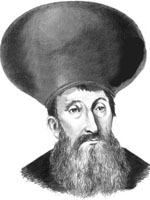 W
WCostache Conachi was a Romanian writer noted for emphasizing reason and improving the craft of Romanian writing. He was an affluent boyar from Moldavia.
 W
WLudovic Dauș was a Romanian novelist, playwright, poet and translator, also known for his contributions as a politician and theatrical manager. He was born into a cosmopolitan family, with a Czech father and a boyaress mother, but his formative years were marked by life in the small boroughs of Western Moldavia. Trained as a lawyer and employed for a while as a publisher, Dauș joined the body of experts at the Ministry of Royal Domains, climbing through the bureaucratic ranks. In parallel, he advanced his literary career: a noted dramatist, he was an unremarked poet and historical novelist prior to World War I. His translation work covered several languages, and includes Romanian versions of The Kreutzer Sonata, Madame Bovary, and Eugénie Grandet.
 W
WVictor Vlad Delamarina was an Austro-Hungarian-born Romanian poet.
 W
WOvid Densusianu was a Romanian poet, philologist, linguist, folklorist, literary historian and critic, şef de şcoală poetică, university professor and journalist. He is known for introducing new trends of European modernism into Romanian literature.
 W
WAlexandru Depărățeanu was a Wallachian, later Romanian poet and playwright.
 W
WPuşi Dinulescu (Romanian pronunciation: [ˈpuʃi dinuˈlesku]; born Dumitru Dinulescu [duˈmitru] was a Romanian playwright, film, theatre and television director, novelist, poet and polemicist.
 W
WAlecu Donici was a Moldavian, later Romanian poet and translator.
 W
WNicolae Gane was a Moldavian, later Romanian prose writer, poet and politician.
 W
WSmaranda Gheorghiu was a Romanian poet, novelist, essayist, playwright, educator, feminist and traveler. She wrote under a number of pseudonyms and is perhaps best known under the moniker Maica Smara, which was given to her by Veronica Micle.
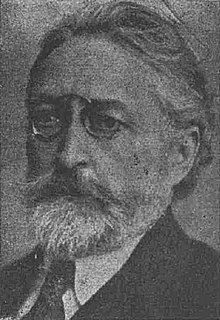 W
WIon Gorun was an Imperial Austrian-born Romanian prose writer, poet and translator.
 W
WGrigore Haralamb Grandea was a Wallachian, later Romanian journalist, poet and prose writer.
 W
WAlexe Mateevici was one of the most prominent Romanian poets in Bessarabia.
 W
WIoan T. Morar is a Romanian journalist, poet, dramatist, novelist, literary and art critic, diplomat and civil society activist. He is a founding member of the satirical magazine Academia Caţavencu and, since 2004, a senior editor for Cotidianul. An amateur actor in his youth, he was also a member of the comedy troupe Divertis from the mid-1980s to 1996.
 W
WAndrei Mureșanu was a Romanian poet and revolutionary of Transylvania.
 W
WGeorge Murnu was a Romanian university professor, archaeologist, historian, translator, and poet of Aromanian origin.
 W
WDumitru G. Nanu was a Romanian poet and translator.
 W
WAnton Naum was a Moldavian, later Romanian poet and translator.
 W
WDumitru Theodor Neculuță was a Romanian poet.
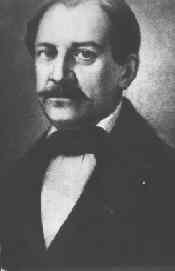 W
WConstantin Negruzzi was a Romanian poet, novelist, translator, playwright and politician.
 W
WIacob C. Negruzzi was a Moldavian, later Romanian poet and prose writer.
 W
WIoan S. Nenițescu was a Romanian poet and playwright.
 W
WNicolae Nicoleanu was an Imperial Austrian-born Romanian poet.
 W
WMarius Oprea is a Romanian historian, poet and essayist.
 W
WNiculina Oprea is a Romanian poet.
 W
WAnton Pann was an Ottoman-born Wallachian composer, musicologist, and Romanian-language poet, also noted for his activities as a printer, translator, and schoolteacher. Pann was an influential folklorist and collector of proverbs, as well as a lexicographer and textbook author.
 W
WAurel Pantea is a Romanian poet and literary critic.
 W
WOskar Pastior was a Romanian-born German poet and translator. He was the only German member of Oulipo.
 W
WCincinat Pavelescu was a Romanian poet and playwright.
 W
WȘtefan Petică was a Romanian Symbolist poet, prose writer, playwright, journalist and socialist activist. Born in the countryside of Tecuci, he early displayed a voracious appetite for literature and philosophy. After high school, he made his way to the national capital Bucharest, where university studies soon gave way to low-paid newspaper work. Petică published one volume of poetry before his premature death, and left his mark as one of the first exponents of the domestic Symbolist movement.
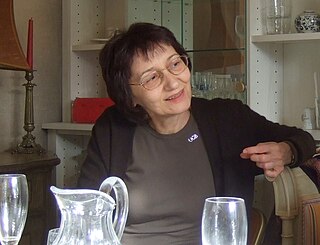 W
WMarta Petreu is the pen name of Rodica Marta Vartic, née Rodica Crisan, a Romanian philosopher, literary critic, essayist and poet. A professor of Philosophy at the Babeş-Bolyai University in Cluj-Napoca, she has published eight books of essays and seven of poetry, and is the editor of the monthly magazine Apostrof. Petreu is also noted as a historian of fascism, which she notably dealt with in her book about the controversial stances of philosopher Emil Cioran.
 W
WDumitru Radu Popescu is a Romanian novelist, poet, dramatist, essayist and short story writer. He is a corresponding member of the Romanian Academy and was, between 1980 and 1990, Chairman of the Romanian Writers' Union.
 W
WConstantin Râuleț was a Romanian playwright, poet and prose writer.
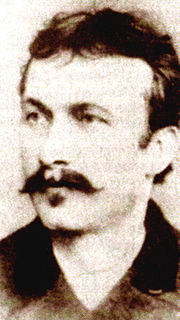 W
WRonetti Roman was an Imperial Austrian-born Romanian playwright and poet. Likely a native of Galicia, he settled permanently in Romania in the mid-1870s. Across the ensuing three decades, he made a name for himself as a polemical journalist, also writing poetry and satire, and concerning himself with the status of the country's Jews. His chief literary contribution was the 1900 play Manasse, which explores the intergenerational conflict between older, devout, tradition-bound Jews and their more secular, modern, assimilated descendants. While very successful with audiences, the play also drew fire from nationalist circles that took to the streets to block its staging on two separate occasions.
 W
WVintilă Russu-Șirianu was an Austro-Hungarian-born Romanian journalist, memoirist and translator.
 W
WMihail Sadoveanu was a Romanian novelist, short story writer, journalist and political figure, who twice served as acting head of state for the communist republic. One of the most prolific Romanian-language writers, he is remembered mostly for his historical and adventure novels, as well as for his nature writing. An author whose career spanned five decades, Sadoveanu was an early associate of the traditionalist magazine Sămănătorul, before becoming known as a Realist writer and an adherent to the Poporanist current represented by Viața Românească journal. His books, critically acclaimed for their vision of age-old solitude and natural abundance, are generally set in the historical region of Moldavia, building on themes from Romania's medieval and early modern history. Among them are Neamul Șoimăreștilor, Frații Jderi and Zodia Cancerului. With Venea o moară pe Siret..., Baltagul and some other works of fiction, Sadoveanu extends his fresco to contemporary history and adapts his style to the psychological novel, Naturalism and Social realism.
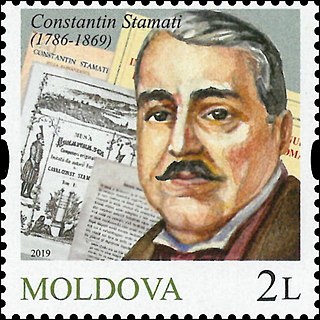 W
WConstantin Stamati was a Romanian/Moldovan writer and translator. Born in Romania, he settled in Chişinău, Bessarabia after the 1812 partition of Moldavia at the end of the Russo-Turkish War.
 W
WPetre Stoica was a Romanian poet and translator. A native of the Timișoara area, he studied at the University of Bucharest before launching a career as a writer. Making his debut in the late 1950s alongside several better-known generational colleagues, he published a number of books over the subsequent decades. His poetry dealt with quotidian subjects and studiously avoided glorification of the ruling communist regime. After the Romanian Revolution, he briefly engaged with the political scene before withdrawing to Jimbolia, not far from where he grew up. There, he worked to enrich the town's cultural life.
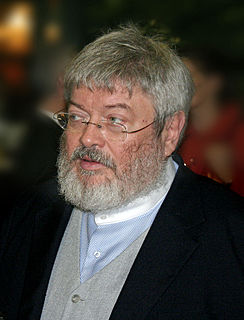 W
WGéza Szőcs was an ethnic Hungarian poet and politician from Transylvania, Romania, who served as Secretary of State for Culture of the Ministry of National Resources in Hungary from 2 June 2010 to 13 June 2012.